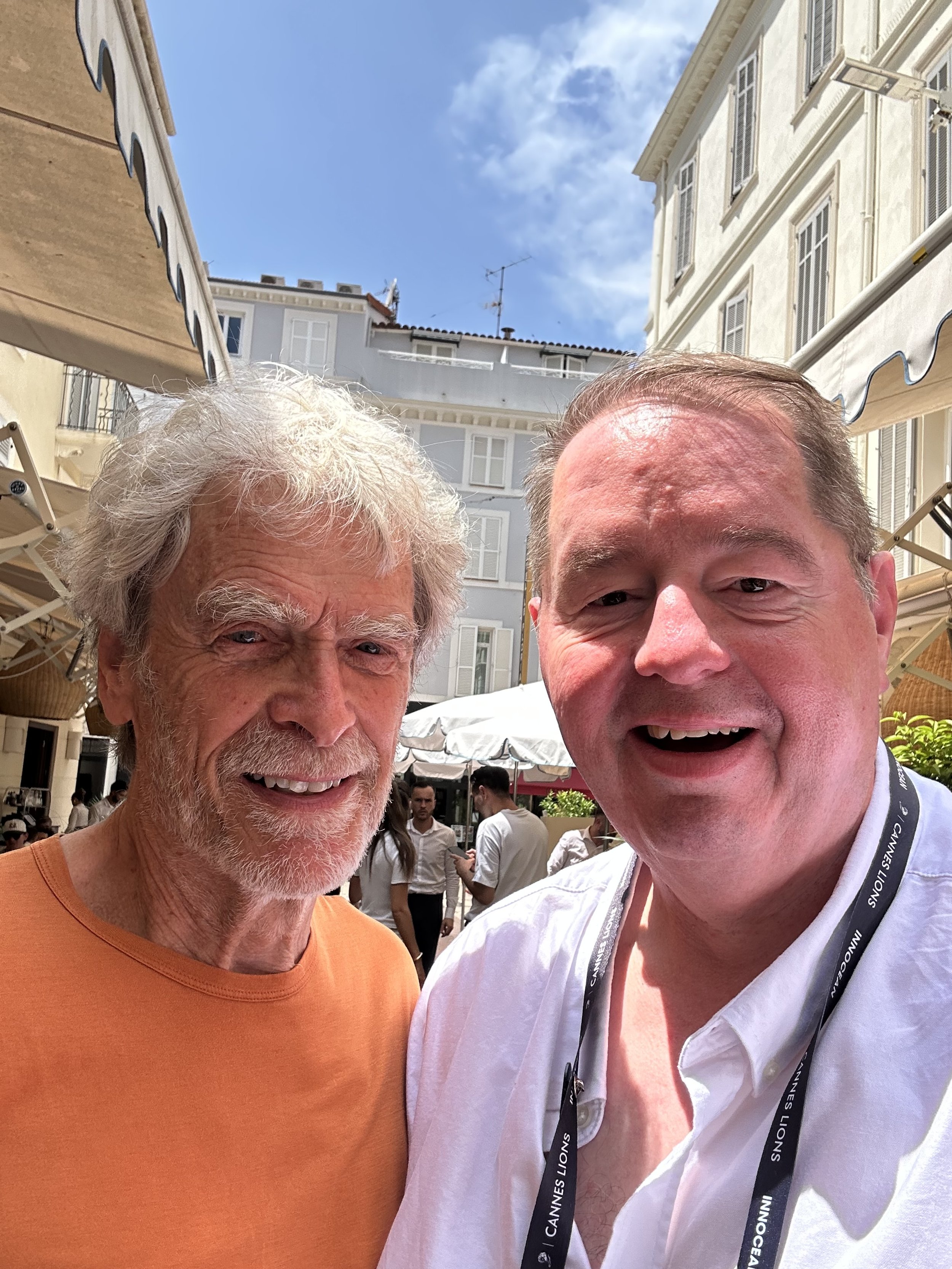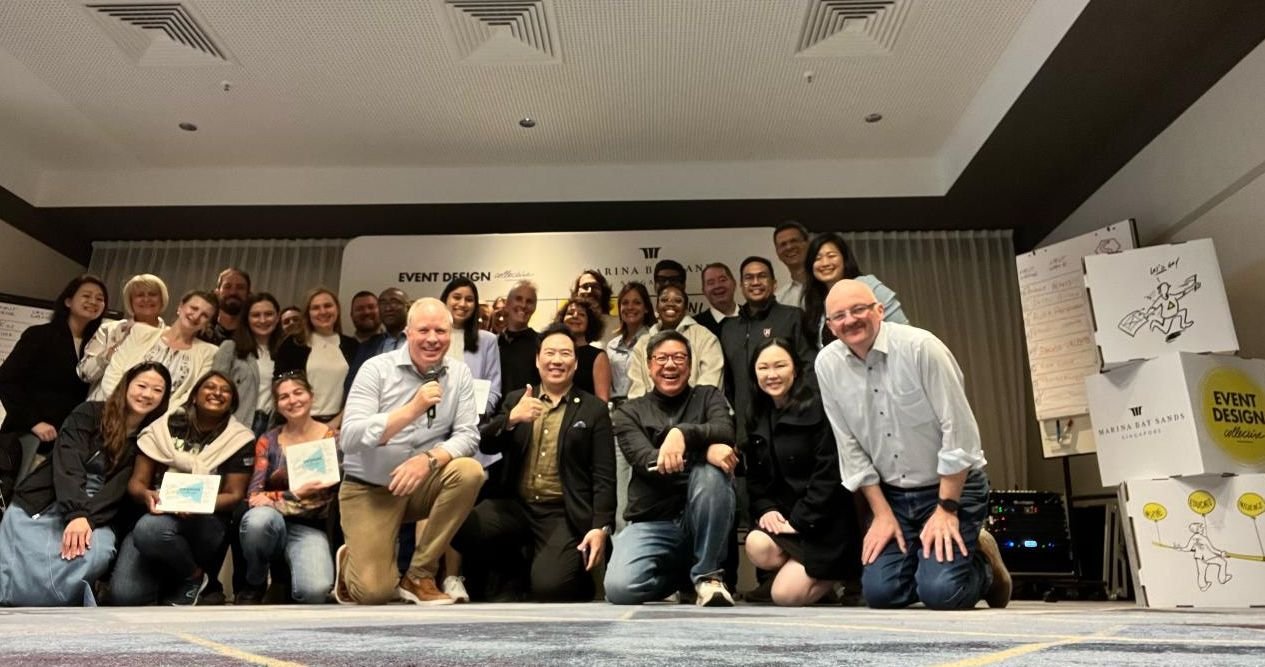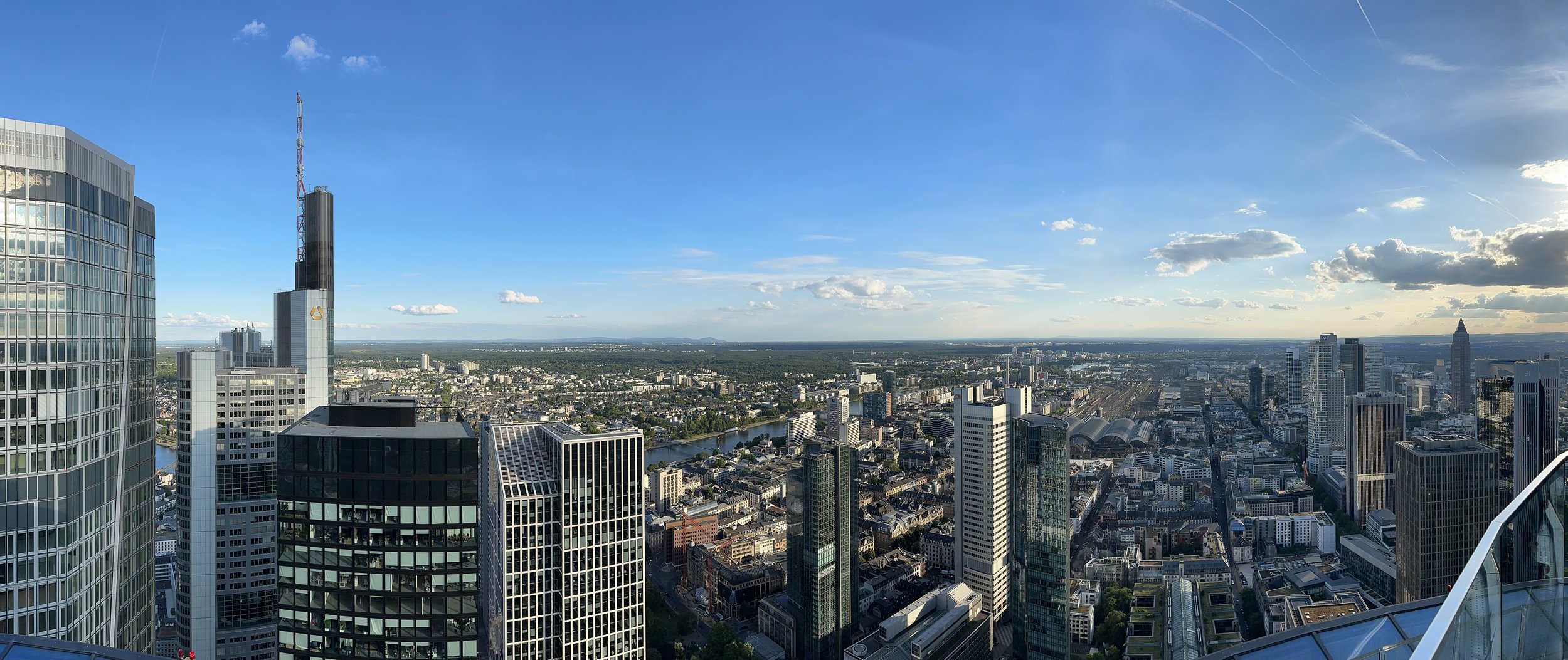A Profound Bet
Migrants make a profound, risky bet to leave home and build something new. This courageous leap into the unknown is driven by the desire to create a better future. Learn more about the extraordinary phenomenon of migration and its impact.
Something Extraordinary Is Happening All Over the World
“Migrants are individuals making a profound, risky bet that by undertaking the rare and difficult decision to leave home, they can build something new.”
This powerful statement by Lydia Polgreen, "Something Extraordinary Is Happening All Over the World" The Great Migration Series (paywall/archive), encapsulates the essence of migration: a courageous leap into the unknown driven by the desire to create a better future.
As someone who has experienced the challenges and rewards of migration firsthand, I find these words both poignant and inspiring.
The CEO’s Job Isn’t What You Think It Is
Discover the true role of a CEO beyond being perfect in every business aspect. Learn how effective CEOs focus on winning by building strong teams and leveraging their strengths to drive company success.
Why being great at everything misses the point entirely. The CEO’s Only Job Is to Win.
The CEO's main duty is to ensure the company wins. As Brian Borque aptly puts it:
“The only universal job description of a CEO is to make sure the company wins.”
This statement encapsulates the essence of leadership, emphasizing that the CEO's role is not to be a jack-of-all-trades but to guide the organization toward success.
There is a pervasive myth in boardrooms, backchannels, and startup circles that a CEO must be a flawless superhuman, excelling in operations, finance, sales, product, people management, and strategy. This belief suggests that to lead effectively, one must have a comprehensive understanding and hands-on expertise in every aspect of the business. However, this is a dangerous misconception that can actually hinder a CEO’s effectiveness.
Central to a CEO's duties is the company's success, not the micromanagement of every detail or expertise in every function. Winning can mean different things depending on the context—profitability, market share, mission delivery, or even survival. But the ultimate goal remains the same: to steer the business toward victory. The most effective CEOs I’ve encountered, like each of us, are often deeply flawed in certain areas, yet they excel in their role by focusing on the outcome rather than personal perfection.
For example, some CEOs are visionary leaders who may struggle with detailed financial analysis, while others are sales geniuses who find hiring a challenge. These leaders understand that their job is to build a strong, complementary team that can cover their weaknesses. They hire the right people, delegate tasks, and create a culture where everyone is working towards a common goal. Instead of wasting time trying to become proficient in every area, they leverage the strengths of their team to achieve the company’s objectives.
This approach to leadership is what sets successful CEOs apart. Their clarity of purpose and ability to focus on the big picture, rather than getting bogged down in minutiae, is what drives the company forward. So, the next time someone criticizes a CEO for not being “across the detail,” “not technical enough,” or “not a natural manager,” consider this: is the company winning? Are they building a team and culture that can sustain that success?
A CEO's true measure of leadership and their company's success is not about being perfect, but about winning and creating an environment where the company can flourish and achieve its goals.
The British Interactive Media Association
I am now a member of BIMA, the British Interactive Media Association, the voice of tech and creativity.
I am really pleased to announce that I have joined BIMA, the British Interactive Media Association. BIMA is the voice of tech and creativity and I’m looking forward to being a part of the association.
Cannes Lions 2025: Hegarty Warns “Giants Can’t Dance” Without Cultural Courage
Stay ahead with Sir John Hegarty’s insights at Cannes Lions 2025. Discover how marketing and creativity must evolve to thrive in the AI landscape.
Sir John Hegarty and me at Cannes Lions 2025
At Cannes Lions 2025, Sir John Hegarty returned to the Croisette with a provocation that cut through the AI noise with characteristic clarity: size is no longer a competitive advantage—creativity is. Addressing a packed audience, the BBH co-founder made the case that legacy institutions are structurally ill-equipped to thrive in the AI era unless they undergo radical cultural reinvention.
“It’s not the big that beat the small or the small that beat the big. It’s the bold that beat the bureaucratic.”
This central thesis—delivered with Hegarty’s signature wit and steel—has clear implications for CMOs and agency leaders. As WARC has previously reported, organisational agility and creative bravery are outperforming traditional scale economics (a). Hegarty’s framework clarifies why bureaucracy and process, once the hallmark of durable enterprise, are now liabilities in a landscape shaped by speed, signal, and strategic improvisation.
The Collapse of the Creative Pyramid
Hegarty contended that the traditional triangle of leadership—where decision-making is concentrated at the top—is outdated. Instead, he offered the metaphor of the inverted triangle, where leadership serves from below, unlocking the distributed creativity of the organisation.
In the age of AI, everyone becomes a creative director. That shift necessitates more than upskilling—it demands a wholesale rethinking of structure, culture, and philosophy.
AI as Collaborator, Not Tool
Rejecting the reductive view of AI as a “tool,” Hegarty framed it as a collaborator. This nuance matters: AI can preserve and evolve founding philosophies, keeping a brand’s original vision relevant long after its originator is gone.
“Maybe one of the functions of AI is that the founder never dies.”
This reframing invites serious consideration from brand stewards. If AI can embody the sensibility and philosophy of a company’s origins—Chanel, Ford, Apple—then strategic brand leadership must shift from protecting the past to actively operationalising it in real-time.
Rebuilding from First Principles
For Hegarty, the path forward for large enterprises lies in rediscovering and reactivating their original philosophy. This rebuilding from first principles is not a nostalgic exercise. It is strategic regeneration. As he put it:
“Go back to what built you.”
This approach aligns with a trend WARC has observed in post-pandemic brand strategy: a return to essential values, often codified in founding principles, used as a compass for navigating transformation (b).
Hegarty cited Patagonia, Oatly, and Apple as examples of brands whose philosophies were not marketing lines but business doctrines—creatively interpreted through product, communications, and culture.
The Strategic Imperative for Brands
Hegarty’s presentation was a call to action, particularly for global brands under pressure to remain culturally relevant in a fragmented, AI-powered landscape. His advice:
Rethink structure: Flip hierarchies to empower bottom-up creativity.
Rediscover your philosophy: Make it central to innovation and brand behaviour.
Use AI to scale culture, not just content.
Stop aiming to be the biggest. Start aiming to be the boldest.
Final Thought
Sir John Hegarty may be a familiar voice at Cannes, but his message this year felt newly urgent. For organisations struggling to keep pace, his challenge was simple: either dance or die. And in the AI era, the pace is only accelerating.
I have recently completed the Creativity for Growth Course. It was a brilliant opportunity for insight and learning from an industry legend.
Sources:
(a) Building Belief: What It Takes to Instill a Culture of Creative Effectiveness
(b) WARC Asian Strategy Report: Staying relevant amidst changing tides
Published on June 25, 2025, at anthonykennedy.com
Effie Awards Judging Panel
I’m honoured to share that I’ve been invited to join the judging panel for the Effie Awards UK 2025. The Effies are among the most prestigious accolades in the marketing and advertising industry—celebrating ideas that work, campaigns that drive measurable impact, and creative strategies that deliver real business results. It’s a privilege to contribute to recognising and rewarding effectiveness at the highest level.
I’m honoured to share that I’ve been invited to join the judging panel for the Effie Awards UK 2025. The Effies are among the most prestigious accolades in the marketing and advertising industry—celebrating ideas that work, campaigns that drive measurable impact, and creative strategies that deliver real business results. It’s a privilege to contribute to recognising and rewarding effectiveness at the highest level.
This builds on my ongoing experience as a judge for the Oystercatchers Awards, where I’ve had the pleasure of serving on the panel for the past three years. Both judging experiences are a welcome opportunity to learn from the best in the industry, engage with bold ideas, and uphold the standards of marketing excellence we all strive for. I’m excited to play a part in spotlighting work that truly moves the needle.
Event planning experience at IMEX 2025 in Frankfurt
Frankfurt from the MainTower observation deck
IMEX Frankfurt is the European home of the world’s leading trade show for the meetings, incentives, conferences, and events (MICE) industry. This was my second time at IMEX Frankfurt looking for inspiration and updates to keep the events we execute at world-class levels.
On the Monday I was fortunate to be invited to the Events Design Collective education session on planning events using the Events Design Canvas. This was presented by Ruud Janssen and sponsored and hosted by Marina Bay Sands Singapore, a premier destination renowned for hosting world-class conferences and serving as a hub for innovation in event design and experiential strategy.
A mouse's-eye view of the Event Design Collective Event Canvas workshop
The Event Design Collective is a global network of event design professionals founded to promote strategic, outcome-driven approaches to designing events. At its core, the collective teaches a methodology rooted in design thinking, systems theory, and business strategy to help teams co-create impactful, intentional event experiences. Rather than focusing solely on logistics or creativity, the approach emphasises aligning events with organisational goals, stakeholder outcomes, and measurable behavioural change. The Collective also trains and certifies professionals in its methodology, aiming to elevate the role of event designers as strategic contributors within organisations.
Central to the Collective’s methodology is the Event Canvas, a visual strategic tool inspired by the Business Model Canvas. It guides teams through a structured process of mapping stakeholder expectations, defining desired behaviours, and evaluating the change required before and after an event. The canvas captures elements such as entry and exit behaviour, pain points, gains, commitment levels, and cost/revenue considerations. By working collaboratively on this one-page visual framework, stakeholders can clarify objectives, align on purpose, and ensure that event design decisions—from format to content—are purposefully crafted to drive the intended transformation.
We worked through the approach to planning an event for identified stakeholders and I was very impressed with the comprehensiveness of the model, but amazed at the simplicity. Across just a few hours we mapped out an approach to planning and delivering the Opening Ceremony of the 2032 Olympic Games in Brisbane, Australia.
This was a great session and a great reflection on both the Event Design Collective and Marina Bay Sands who have certified their Events team in this methodology. Many thanks to Ruud, Tracy, Kenneth, and Sherman.
Two books on The Event Canvas methodology rooted in design thinking, systems theory, and business strategy to help teams co-create impactful, intentional event experiences.
Making better choices
The importance of making better choices.
“A mistake repeated more than once is a decision.”
— Paulo Coelho
Career strategy
Listening to John Evan’s brilliant Uncensored CMO podcast, episode 188 has Rory Sutherland and Scott Galloway. It is the first time these legends have been on a podcast together.
One of the many stand out quotes from this session was about the futility of skills and talents in certain industries and the consequences of the decisions we make and the careers we pursue.
“Be in an industry where you get better as you get older.”
It is a stand out podcast episode that is well worth a listen.
Independent Agency Awards Judging
I’m delighted to have been invited to judge the Association of Independent Agencies (AIA) Awards—a celebration of the creativity, agility, and impact delivered by the UK’s leading independent agencies. The awards shine a spotlight on the bold thinking and entrepreneurial spirit that define the independent sector.
I’m delighted to have been invited to judge the Association of Independent Agencies (AIA) Awards—a celebration of the creativity, agility, and impact delivered by the UK’s leading independent agencies. The awards shine a spotlight on the bold thinking and entrepreneurial spirit that define the independent sector.
Round one judging is now complete, and I’m pleased to see the shortlist now live, reflecting the depth of talent and innovation across the industry. Judging these awards has been a rewarding opportunity to engage with inspiring work, and I look forward to seeing the winners revealed in due course.
Systems
A key area of my focus at the moment is around process efficiency and I am reading Get Scalable by Ryan Diess.
Get Scalable has a complete framework to building a valuable function/business and will be implementing the frameworks and approaches in this book.
As part of the reality of my landscape at the moment this quote stood out to me:
“Good people don’t fix broken systems. BROKEN SYSTEMS BREAK GOOD PEOPLE”.
2025 will be a year of working to fix broken systems to improve the working life for my teams, team members, and myself.




















